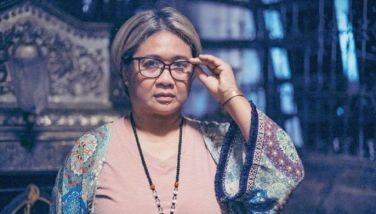Various takes on the life & death of the Internet
It was bound to happen, they all will say. Nothing ever lasts forever. The best laid plans of mice and man will ultimately end in disaster. Lately, we have been encountering studies in book form on the state of communications through the ages, from sign language to writing on the side of caves where man dwelt to the industrial revolution and finally, the discovery of the Internet now beset with all the problems known to man, including its newest offspring called the social media.
In a short analysis published by The STAR titled Why the Internet Works (and how to break it), Vincent Serf and Bob Kahn began work in 1973 on the design that became the Internet. Serf says they had anticipated the Notebook but not the handheld Smart Phone. What the two scientists had not prepared for were the millions of users, “a million times more hosts, a million times more networks, all connected a million times faster.â€
Admitting that the Internet can be abused and people harmed from that abuse, Serf says “protection of personal information should be a high priority… but as we do figure out better ways to make cyberspace safe to use, we must preserve the very properties that have made it so successful: Transparency and openness, participatory policy and technology development.â€
Meantime, Angelo Garcia in a piece titled Selfie Nation writes of how Makati and Pasig won top spots, beating Manhattan in New York which took second place with known actors joining in. Admitting that social-media-obsessed Filipinos have always gone for being tops in everything new, Garcia states it may be a way of calling attention.
For definitive samples of this selfie mentality, Garcia goes to developmental psychologist Maria Paz Manaligod, Ph.D. and her treatise on human behavior from the time of our ancestors who lived in caves to today’s social media and its selfies. The new generation has invented its own vocabulary like “netizens†for the citizens adhering to the new language, “like†for positive proof one gives for an opinion, work of art, etc., and “friend†for someone belonging to either Facebook, Twitter, Instagram collectively known as the New Media.
Dr. Manaligod writes, “Now, stories are posted online, which is more often a public domain that makes our stories more accessible by netizens… The youth of today put too much value on the number of friends, likes, favorites and comments they get on social media.â€
Dr. Manaligod admits that there may be harmful effects from being too much involved with the social media that could lead to depression because of the value people put into it.
The worst scenario, says Dr. Manaligod, is when “young people who rely so much on others’ positive perception of them would get depressed if they don’t get what they wished for. Since people long for self-esteem that can be compensated by the affirmation people give, the number of ‘likes’ in social media would have an impact on most people… In this case, social media now becomes their battlefield whereby all posts should be liked by friends, and commented on. Anxiety becomes pervasive if one does not get the response she/he wants from friends.†
“Although social media relationships may look quite superficial being devoid of personal and physical interaction, it is, however, the most effective way of connecting or reconnecting with friends and relatives,†finishes Dr. Manaligod.
As a final word on the state of the Internet from the point of view of various other cultures around the world, we have Kirk Johnsons’ Has the E-Book Revolution Reached a Plateau? If most companies in the Internet trade have been spending sleepless nights on how to combat upcoming developments, the city of Seattle in Washington has chosen a simpler route, that of ignoring the problem. We have been told that long-running surveys on literacy countrywide have always shown Seattle second to Washington DC. More and more people are opening up independent bookstores and Tom Nissley (formerly working with Amazon) says he sees that the E-Book Revolution had reached a plateau.
(E-mail your comments to [email protected] or text them to 0915-8991835.)
- Latest
- Trending































